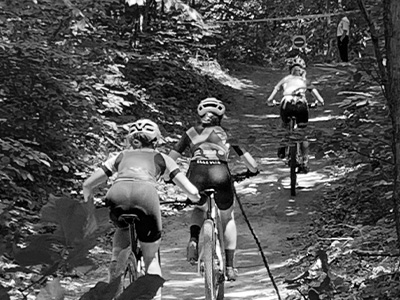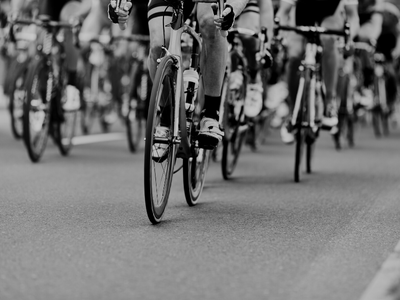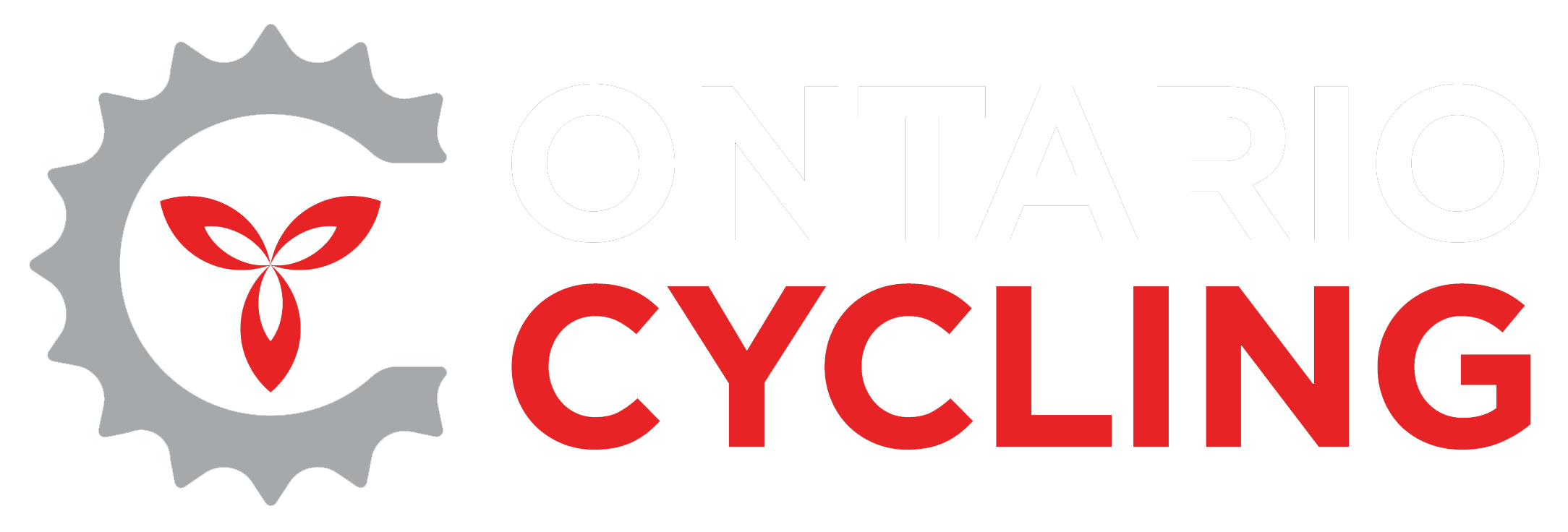March 22, 2022
by molly hurford
Ontario Cups are almost here again for all disciplines, and this year it certainly seems like racing will be back to normal, possibly even better than ever. But you might be feeling a bit stressed, especially if you, like many of us, haven’t been on a start line in nearly three years. Perhaps you’re new to racing altogether. The good news is that Ontario Cups (OCups) are incredibly friendly, fun events whether you’re racing on the road, track, MTB or BMX course. A little preparation can go a long way to making your day much more fun and smooth, so we’ve compiled a few tips to ensure that race day goes great.
Make Sure you're actually registered
Many races no longer offer day-of registration due to COVID policies (though that may change this season). Pre-registering online is better for you and the race organizers anyway since it saves you valuable time and stress on race day.
Register online and make sure that your registration is confirmed. And if your club is the one doing the registering, it’s never a bad idea to follow up with the person in charge of registrations to make sure you’re confirmed for the race if you haven’t heard from them!

Expect COVID-19 policies to be changing constantly

Race promoters are still paying attention to provincial COVID-19 policies, which are still in a constant state of flux. Remember that if you’re asked to distance in the registration line socially or you need to wear a mask when going inside of buildings, it’s based on provincial guidelines, not something race organizers can control.
As one promoter noted, ‘It feels like the minute we put out the tech guide, the provincial mandates change.” Give the promoters some grace (and say thank you), because they’re doing the best they can.
be prepared
Make a checklist
Many Ontario Cup venues don’t have a lot of amenities. Some will have amazing food stands or food trucks, but other venues may be in parks where even bottled water is in short supply. Always assume the worst and hope for the best by packing all the water and snacks you’ll need for a day of racing. Maybe you’ll get lucky, and there will be great meal options, but it’s better to be prepared, so you never end up hangry pre-race or dehydrated post-race.
Start the season by making an extensive checklist with all the gear you will need for a race: Changes of clothing and kit, helmet, shoes, bike, various tools, pumps, water bottles, towel, etc. Keep this note on an easy-to-access app on your phone, or get even more organized by printing it, laminating it, and sticking it directly in your race bag so that you can reference it easily every time you pack. Bonus points if you then use a dry erase marker to check off things as you pack, then wipe it off post-race for next time!
Arrive early
Whether you’re a racing veteran or you’ve never been to a race before, it’s worth reminding you of this fact: It’s essential to get to the race early. Earlier than you think, you need to be there. There will always be slowdowns, from finding a parking spot to walking to registration to waiting in line act registration to waiting in line at the port-a-potty (really, lots of waiting in lines). And even your start time is a bit of a misnomer: If the schedule says your race starts at 12:30, you’d better be hovering around the starting area by 12:15, or you might risk missing your call-up.
Check the start/ finish
Deal with pre-race jitters
It’s not always possible to pre-ride an entire course, but even on race day, take some time to check out a race start (watch another category’s race start if possible, or at least walk the start straight to see if there are any obstacles, turns, shifts to single track, potholes, etc. to be aware of). Then, check out how the race finishes so that you know a) where the finish line is (sometimes it’s not the same as the start line!) and b) if there are any tight turns or obstacles near it that you will need to navigate.
Take a few deep breaths, focusing on letting your belly fully expand on the inhale and empty out on the exhale. Pay attention to your breath while you do this: The simple act of focusing on your breathing will help bring your heart rate down and relax you. That said, don’t try to fully relax: Not only is fully relaxing on the start line almost impossible, you actually want a bit of those nerves in order to have a great start. So rather than thinking ‘relax,’ try to reframe your nervousness or fear as excitement (your body doesn’t know the difference!).
First race? set your priorities straight
If it’s your first bike race, your number one priority should be feeling safe, and second to that, having fun. So don’t put a lot of pressure on yourself to stick to the lead group, keep up with the peloton, ride every obstacle or finish in a certain time. Rather, see your first season of racing as a great learning experience and a fun time!
Enjoy it: High five volunteers (maybe not while riding unless you’re really good technically), make time to laugh with your friends and family and even try to introduce yourself to a few new people. We haven’t been able to gather as a community for a while, so enjoy these moments rather than feeling stressed about a podium position!
About the Writer
Molly Hurford is a journalist in love with all things cycling, running, nutrition and movement-related. When not outside, she’s writing about being outside and healthy habits of athletes and interviewing world-class athletes and scientists for The Consummate Athlete podcast and website, and most recently launched the book ‘Becoming A Consummate Athlete.‘ She’s the author of multiple books including the Shred Girls, a young adult fiction series and online community focused on getting girls excited about bikes.
Molly is a little obsessed with getting people psyched on adventure and being outside, and she regularly hosts talks and runs clinics for cyclists and teaches yoga online and IRL… And in her spare time, the former Ironman triathlete now spends time tackling long runs and rides on trails or can be found out hiking with her mini-dachshund DW and husband, cycling coach and kinesiologist Peter Glassford.
